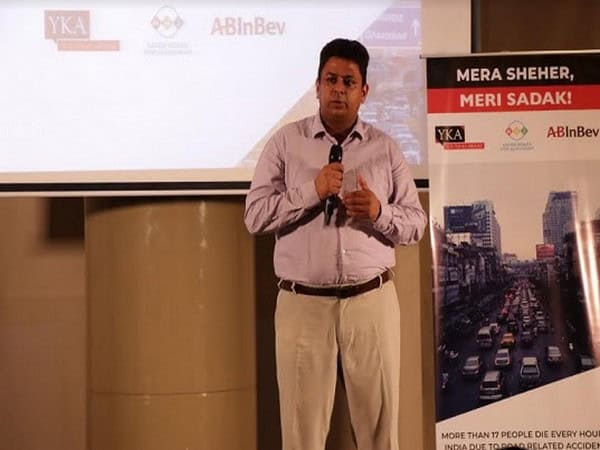New Delhi: More than 33 per cent of people in the age group of 18-35, are not aware of the Good Samaritan Law – the law offering protection to bystanders who chose to help victims of road accidents.
Even more alarmingly, 37 per cent of people in this age group, as per their own admission, do not observe lane discipline while driving and commit traffic violations such as over speeding. Within Delhi NCR over 20 per cent of road users admitted to jumping a traffic light at least once a month. These were some of the key findings of a survey conducted by Youth Ki Awaaz, in association with SaferRoadsForGurugram – a consortium of public-private
partners for Road Safety led by Anheuser Busch InBev (AB InBev).
The findings of this survey, which was conducted online across India over a period of four months, were released and discussed today at an event where key road safety experts, citizen network groups and policy makers raised a
call for implementing stronger measures that can reduce road fatalities.
The event was presided over by Dr Eish Singhal, DCP, Traffic Police, New Delhi. “There is a need for behavioural change. Observance of traffic rules, should not be merely because a traffic cop is observing you. As citizens we need to be conscientious and follow the law even when no one is looking”, said Dr Singhal.
“India’s infrastructure is developing at a rapid pace with new roads being built at the rate of 45 kms per day.
India is also a signatory to the Brasilia declaration, a commitment to halve road traffic deaths and injuries by 2020. This bold vision can be achieved as most road safety risk factors are within human control. Collective action to address these factors is the need of the hour. As an organization AB InBev is committed to the United Nations Sustainable Development Goals (SDG), and we understand that as a significant global operator of roadway fleets, we have a unique opportunity to lead the change by working closely with our partners to increase awareness about road safety’s importance”, said Ben Verhaert, President-South Asia, AB InBev.
The event hosted talks by several prominent road safety activists.
“Signages and unplanned infrastructure in the city leaves a lot to be desired and planning agencies need to be more thoughtful about everyone. Footpaths are often broken and are inaccessible for people on a wheelchair”, said Nipun Malhotra, activist and founder of Nipman Foundation.
The survey also highlighted that only 20 per cent of the respondents preferred using public transport, and most prefer using their own vehicles.
“When it comes to personal vehicles, somehow it appears, that people in India, have been brought up on a culture of not obeying traffic rules. It needs to be tackled from the social conditioning standpoint of road users and making them realise how dangerous their behaviour can be for them,” said Sneha Makhijani.
The findings of the survey also revealed a severe lack of accessibility of various city infrastructure-related projects meant for pedestrians, such as the foot over-bridges, footpaths, level crossings among others.
Amar Srivastava, Founder of the Indian Road Safety Campaign discussed how important it is for citizen-led movements to be active to bring about changes on the ground.
“We need better awareness campaigns and incentives for people to assist survivors of accidents. The importance of first responder training on this issue is lacking in our schools and offices and this needs to be looked into by the government,” said Amar.
The event concluded with the audience taking a pledge to obey traffic rules and to be more responsible road users and the organisers presenting suggestions to Ministry of Road Transport and Highways (MoRTH) towards improving safety on Indian roads.
[source_without_link]ANI[/source_without_link]

